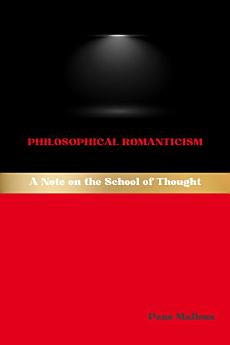Philosophical Romanticism: A Note on the School of Thought
About this ebook
Philosophical Romanticism is not a school in the formal sense. It has no definitive canon, no singular methodology, and no authoritative voice. It is better understood as a constellation of thinkers—such as Friedrich Schlegel, Novalis, Schelling, and Coleridge—who were united less by dogma than by sensibility. Their writings span literature, science, politics, theology, and metaphysics, and their insights cannot be neatly contained within disciplinary boundaries. This is part of what makes Romanticism so compelling: it is porous, experimental, and alive with tensions. At its core lies a philosophical ambition to think beyond the binary oppositions that often shape Western thought—reason and feeling, nature and culture, self and world—and to move instead toward a vision of unity-in-difference, of the infinite disclosed through the finite.
In our own time, marked by ecological crises, technological alienation, and an increasingly instrumental view of human life, Romanticism speaks with renewed urgency. Its refusal to reduce nature to mere resource, its insistence on the poetic dimension of existence, and its embrace of becoming over static being offer important correctives to dominant paradigms. But Romanticism also invites critique. It harbors political ambivalences, aesthetic elitism, and at times a dangerously inflated view of the self. To approach this tradition today is to engage it both sympathetically and critically, to recover what is vital while remaining attentive to what must be rethought.
This book does not aim to provide a comprehensive history of Romanticism, nor does it seek to systematize a philosophy that resists systematization. Instead, it offers a series of interpretive essays, thematic inquiries, and close readings that explore the philosophical impulses at work in Romantic thought. Each chapter invites the reader to linger with Romanticism's central questions: What is the relation between self and world? How does imagination disclose truth? What does it mean to live a free and meaningful life in a world not of our making?
My hope is that this book will speak not only to scholars of Romanticism but to all those drawn to philosophy as an art of living—a mode of being in the world that is at once critical and creative, rigorous and open. In retracing the steps of these Romantic thinkers, we do not merely excavate a past era; we enter into a dialogue that is still unfolding. Romanticism, after all, is not a closed chapter in intellectual history. It is a mode of thinking that pulses beneath many of our most urgent contemporary concerns, and it continues to offer a vision of philosophy as a living, dynamic, and transformative force.
Let us begin, then, not with conclusions but with questions.











